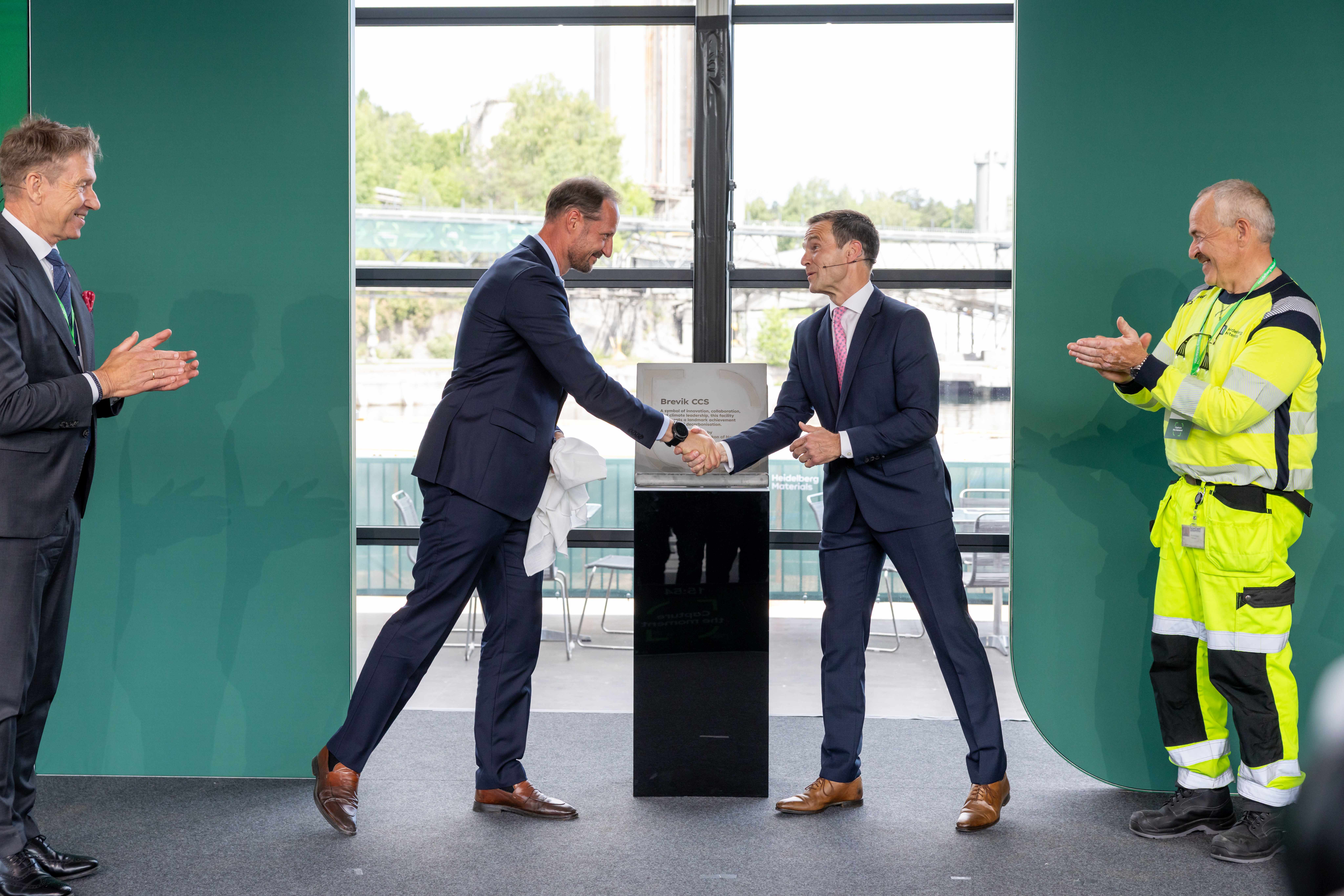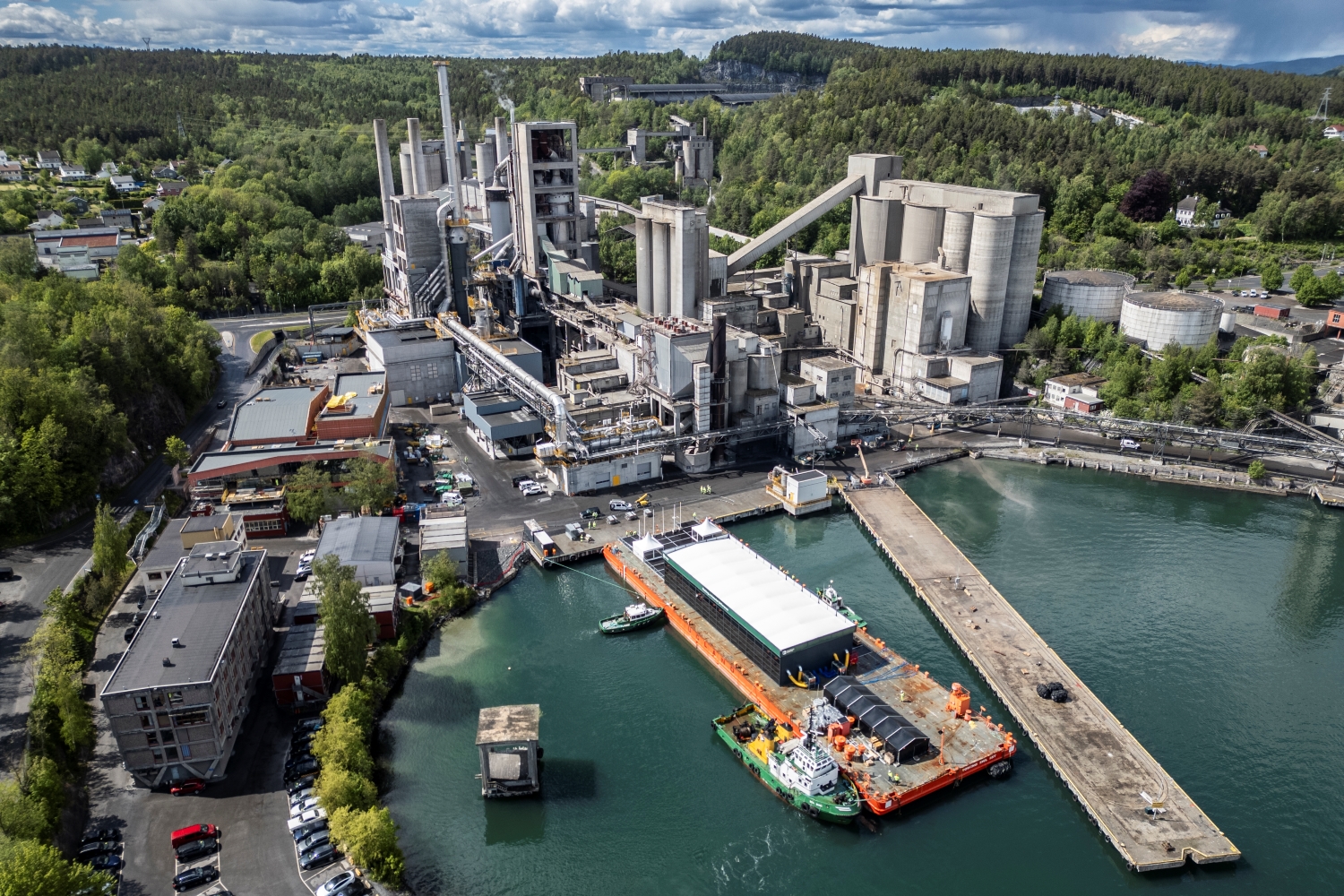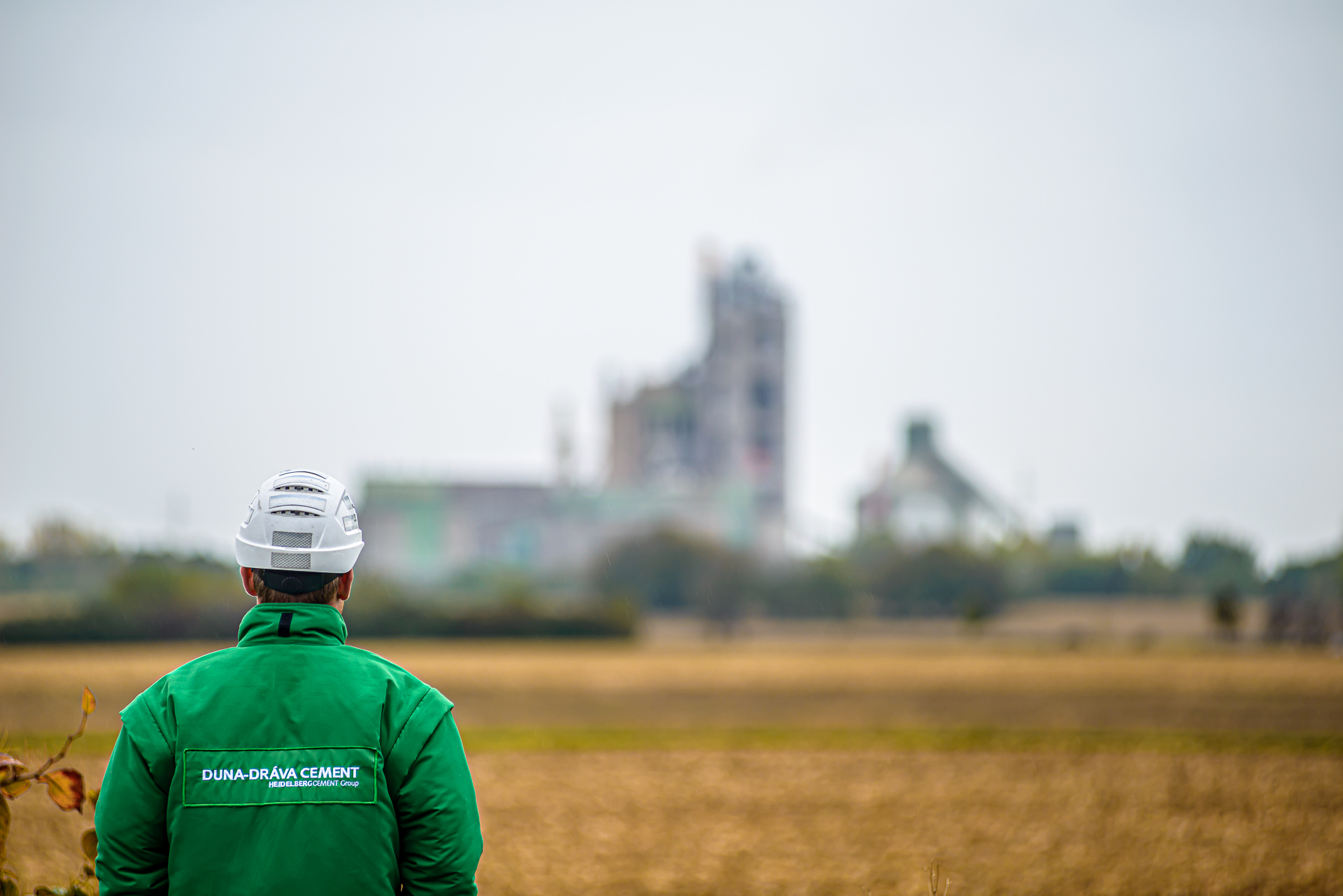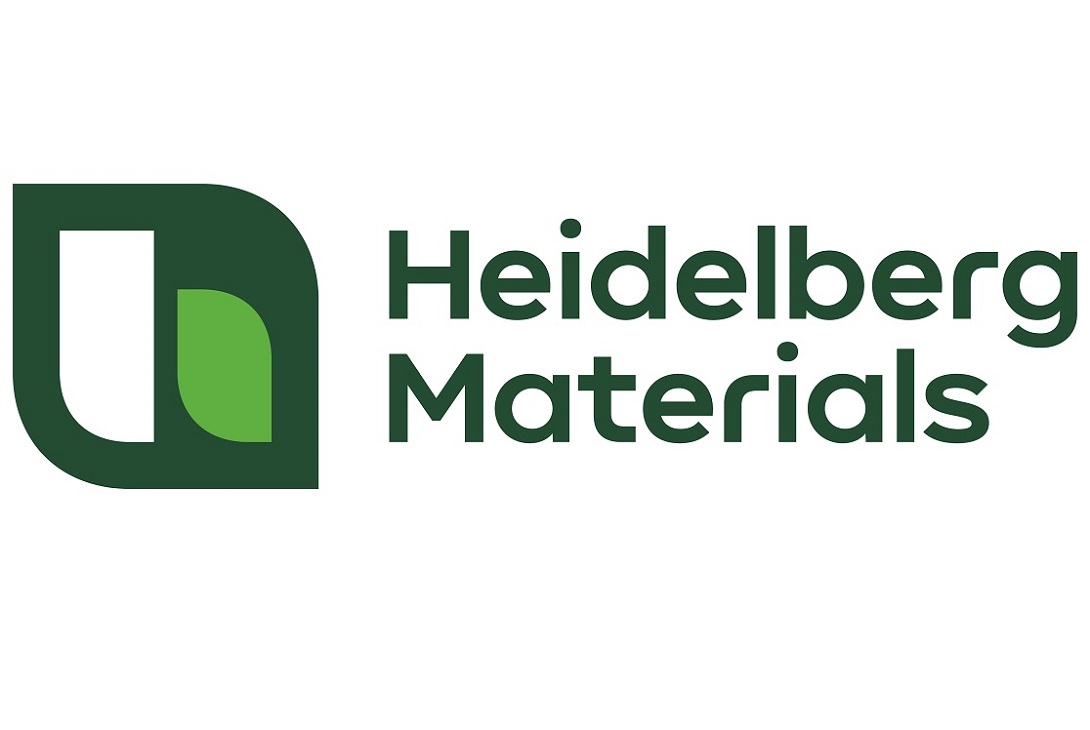World premiere at Heidelberg Materials: Opening of CCS facility in Norway marks new era of sustainable construction
- Festive opening of Brevik CCS in Norway, the world’s first industrial-scale carbon, capture, and storage (CCS) facility in the cement industry
- Facility officially inaugurated by H.R.H. Crown Prince Haakon of Norway and more than 320 guests, including Terje Aasland, Energy Minister of Norway
- Brevik CCS will capture around 400,000 tonnes of CO₂ per year facilitating the production of evoZero, the world’s first carbon captured cement enabling net-zero concrete
- First CO₂ already successfully captured, liquefied, and temporarily stored; injection into the subsea reservoirs is scheduled to begin in August
- More than 1.2 million hours of technical precision work carried out by an on-site team of up to 400 employees and external partners
- As a first-of-its-kind project in the cement sector, Brevik CCS is an important blueprint for future CCS projects worldwide
Heidelberg Materials has officially inaugurated Brevik CCS in Norway, the world’s first industrial-scale carbon capture, and storage (CCS) facility in the cement industry. During a festive ceremony at the Brevik cement plant, H.R.H. Crown Prince Haakon of Norway officially unveiled a concrete-made plaque commemorating the historic milestone in attendance of Terje Aasland, Norway’s Minister of Energy, Dr Dominik von Achten, Chairman of the Managing Board of Heidelberg Materials, and more than 320 guests, including industry leaders, international high-level government officials, as well as representatives from NGOs and start-ups.
Brevik CCS will capture around 400,000 tonnes of CO₂ per year, representing 50% of the plant’s emissions – and equivalent to the amount of CO₂ emissions per passenger for roughly 150,000 round-trip flights between Frankfurt and New York. The facility is part of the Norwegian government’s Longship project, developing Europe’s first full-scale value chain for carbon capture, transport, and storage from hard-to-abate industries. Within Longship, the Northern Lights initiative – a collaboration between Equinor, Shell, and TotalEnergies – is the partner responsible for the carbon transport and storage. The CO₂ captured in Brevik will be liquefied and shipped to an onshore terminal on the Norwegian west coast. From there, it will be transported by pipeline to permanent storage under the North Sea.
“Today marks a historic milestone and tectonic shift in the built environment. The opening of Brevik CCS is a tremendous technological achievement that will serve as a blueprint for entire industries as we progress towards Net Zero and into a new era of sustainable construction,” said Dr Dominik von Achten, Chairman of the Managing Board of Heidelberg Materials during the ceremony. “Above all, it is a testament to what can be accomplished when exceptional minds with a shared vision and strong determination come together. I am very proud of our teams and the partners who have contributed to the success of this project. We owe it to each one of them that supplying net-zero concrete is no longer a future ambition but a reality.”
“As a key part of Norway’s Longship programme, Brevik CCS is a powerful example of how businesses and government can work hand in hand to pave the way for a more sustainable future,” said Norwegian Minister of Energy Terje Aasland. “This form of collaboration can foster innovation and kick start development of nascent markets for climate technology.”
As part of the ongoing ramp-up of Brevik CCS, first volumes of CO₂ have already been successfully captured, liquefied, and temporarily stored. Northern Lights have started first shipments to their intermediate storage site in Øygarden in June. Subsequently, Heidelberg Materials will begin to deliver evoZero®, the world’s first carbon captured cement enabling net-zero concrete, to customers in Europe.
“Brevik CCS is a true pioneering project. Thousands of people from all over the world have already visited the facility to learn from our experience. This is not just a technical masterpiece, but a concrete example of industrial leadership on climate issues,” said Giv Brantenberg, General Manager of Heidelberg Materials Northern Europe.
As part of the project, the carbon capture facility has been integrated into the Brevik cement plant without disrupting ongoing cement production. Heidelberg Materials recruited 30 employees, who have undergone intensive training and are now responsible for operating the carbon capture facility.
Brevik CCS is the first in a growing portfolio of carbon capture, utilisation, and storage (CCUS) projects across Heidelberg Materials. The project will contribute to further scaling carbon capture solutions in the industry as the company is leveraging the lessons learned in Norway.
Captions
Image 1: Unveiling of the inaugural plaque at the Brevik CCS opening event (from left): Terje Aasland, Norway’s Minister of Energy, H.R.H. Crown Prince Haakon of Norway, Dr Dominik von Achten, Chairman of the Managing Board of Heidelberg Materials, Per Ole Morken, Brevik Plant Manager
Image 2: Today, Heidelberg Materials has officially inaugurated Brevik CCS in Norway, the world’s first industrial-scale carbon capture, and storage (CCS) facility in the cement industry.
Credits: Heidelberg Materials
About Heidelberg Materials
Heidelberg Materials is one of the world's largest integrated manufacturers of building materials and solutions with leading market positions in cement, aggregates, and ready-mixed concrete. We are represented in around 50 countries with around 51,000 employees at almost 3,000 locations. At the centre of our actions lies the responsibility for the environment. As the front runner on the path to carbon neutrality and circular economy in the building materials industry, we are working on sustainable building materials and solutions for the future. We enable new opportunities for our customers through digitalisation.

Festive opening of Brevik CCS in Norway.
Heidelberg Materials

Brevik Cement Plant.
Heidelberg Materials

Festive opening of Brevik CCS in Norway.
Heidelberg Materials

Brevik Cement Plant.
Heidelberg Materials

